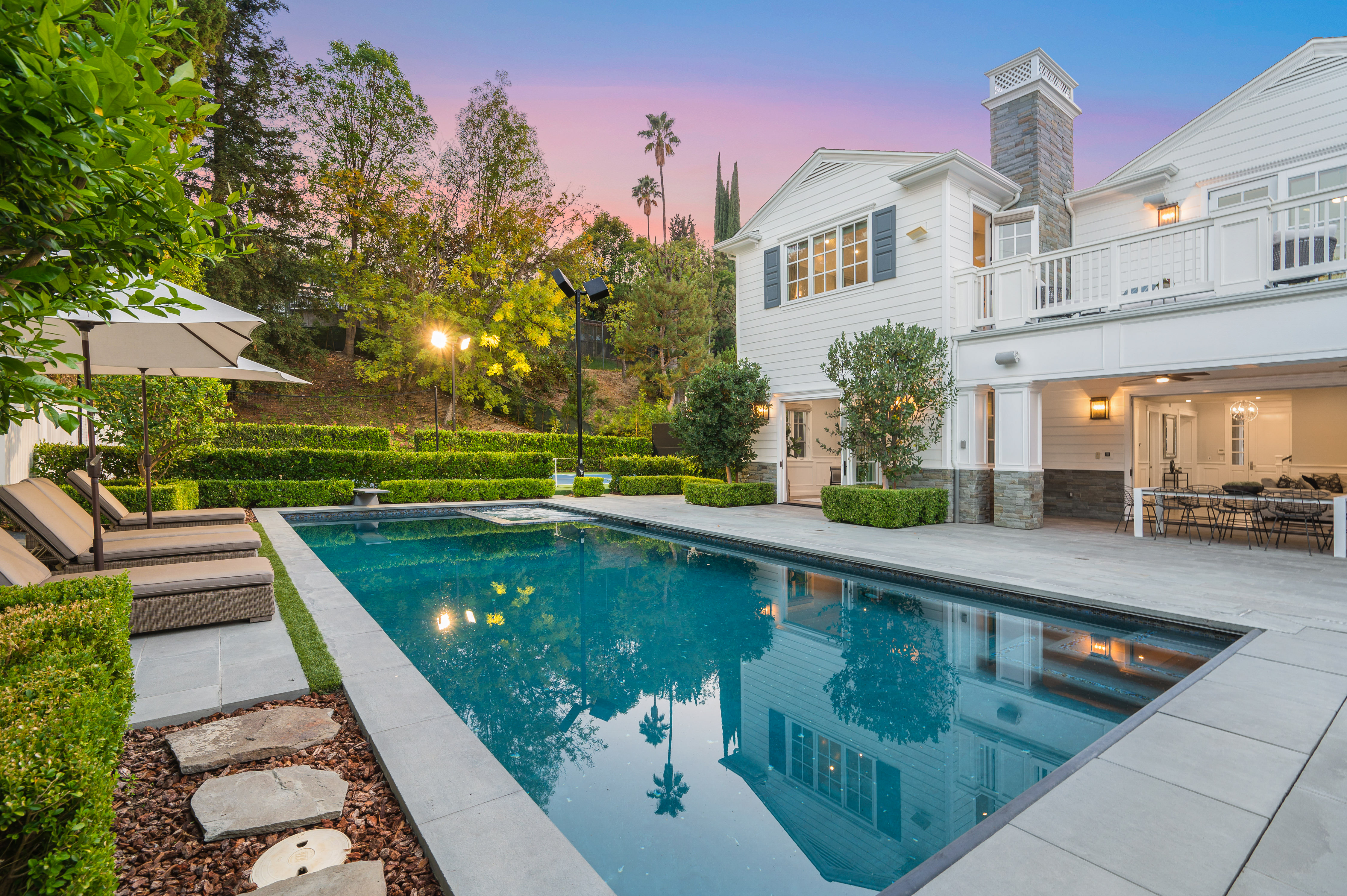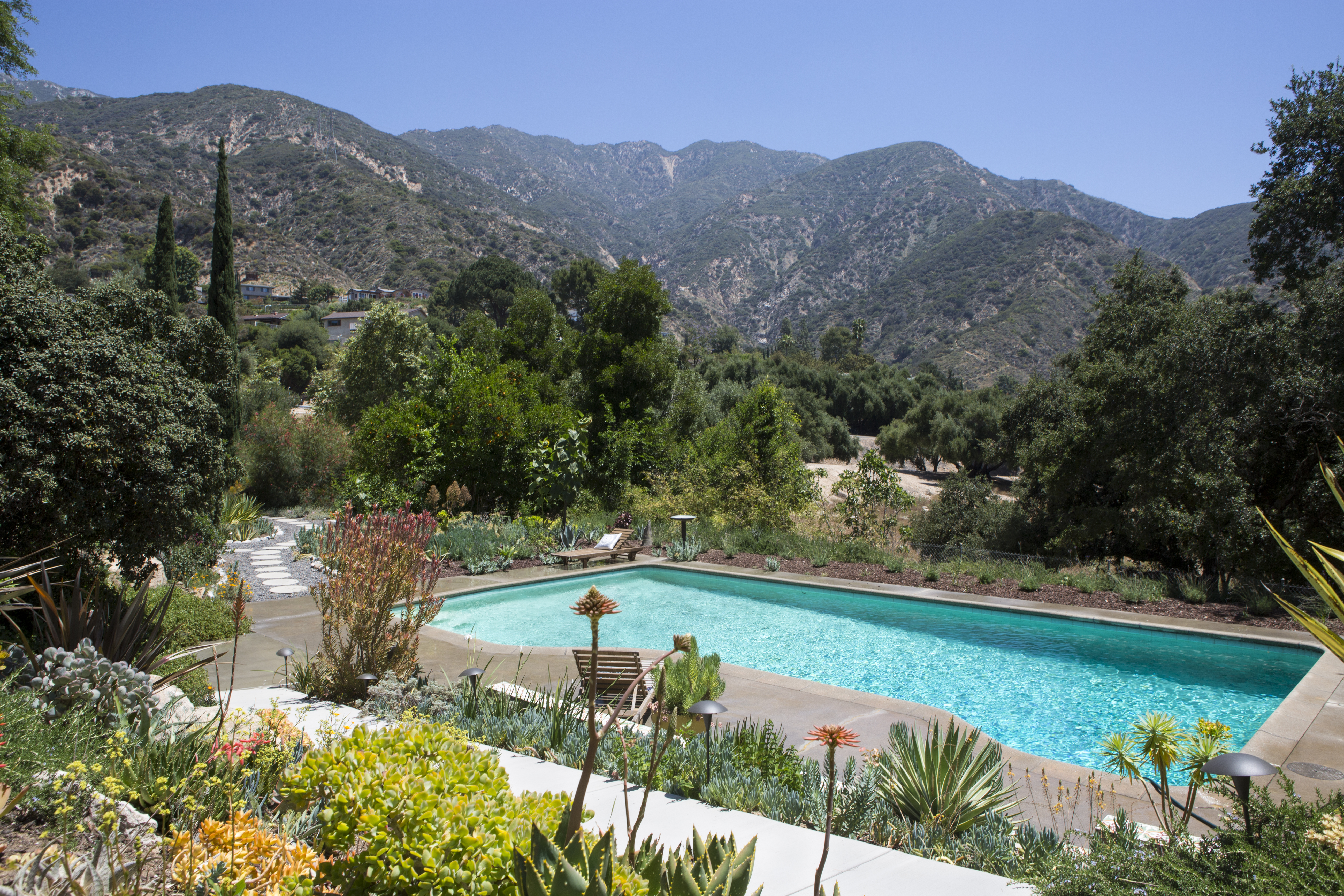
A pool can help you cool off and relax, but it’s important to plan for in-ground pool costs in Los Angeles. Here are the factors that affect the cost.
Go for an afternoon dip without the initial shock of ice-cold water


Hire a pool heater pro to identify the best type of pool heater for you based on your budget, pool type, and heating goals.
Gas and electric resistance pool heaters are the most affordable options.
Solar pool heaters are expensive but offer lower emissions, minimal maintenance, and a long lifespan of up to 20 years.
If you have a small pool, consider an electric resistance pool heater.
Unless you're a lover of the polar bear plunge, installing a pool heater is the key to swimming in comfort. There are four primary types of pool heating systems: gas, electric resistance, solar, and heat pumps. Each type of pool heater comes with a list of pros and cons, common installation and operation costs, and lifespans. When it comes time to buy a pool heater, consider your options before diving in.
| Type of Heater | Cost |
|---|---|
| Gas Pool Heater | $1,500–$6,000 |
| Solar Pool Heater | $2,500–$9,500 |
| Electric Resistance Pool Heater | $1,000–$6,000 |
| Heat Pump Pool Heater | $2,500–$7,500 |
For most people, a comfortable swimming temperature ranges between 78 to 82 degrees Fahrenheit. If installing a heater, talk to your electrician or pool contractor about how this may impact your electrical bill.
Gas pool heaters are among the most popular methods to heat a pool. You have your choice of propane or natural gas, depending on availability in your area and personal preference. Gas heaters warm a combustion chamber by burning natural gas or propane, similar to your home's hot water heater. The pool water passes through a separate chamber, warming as it goes.
And while both types of gas systems are far faster than other pool heaters, the efficiency, lifespan, and utility costs will vary depending on whether you choose gas or propane. In general, gas pool heaters cost more to operate than other types of pool heaters. Keep in mind that you will need to add a gas or propane line during or after your poor installation.
| Pros | Cons |
|---|---|
| Low installation costs | Higher operation costs |
| Heats water quickly | Produces higher emissions |
| Works for many types of pools | Only last around five years |
| Can connect to existing gas lines | May need a new gas line |
Best For: Households on a tight budget

On the other side of the price and emission spectrum, heat your pool with a solar system. You'll need a good deal of space, sunlight, and time to see results from a solar pool heater, but they are often a solid long-term investment.
Much like the other pool heaters on our list, your pool water will travel through a series of filters and pipes and warm up on its journey. In this case, the heat comes from energy accumulated by solar panels. For a pool heater, you'll need pretty consistent sunlight to keep up with your pool water temps, especially if you're trying to swim into the early fall.
| Pros | Cons |
|---|---|
| Lower emissions | High installation costs |
| Lower operational costs | Heats water slowly |
| Minimal maintenance once installed | Not ideal for all climates |
| Lifespan between 10 and 20 years | Panels require more space |
Best For: Homes with ample space and sunlight
Small pools in warm climates can benefit from electric resistance pool heaters. While they may sound ideal in theory—no use of propane or gas and simple installation—their operational costs are fairly high, and they aren't good for large pools.
In this case, electricity heats a set of resistance coils, thus warming the water moving through the pool heater's filter on its way. The system requires large amounts of energy to keep the water warm and requires a dedicated outlet, which can add to its overall installation cost.
| Pros | Cons |
|---|---|
| Low installation costs | High operational costs |
| Avoids gas emissions | Not ideal for large pools |
| Ideal for small pools | Not ideal for cold climates |
| Lasts up to 10 years | Requires dedicated circuit |
Best For: Smaller pools in milder climates

If you're on the hunt for an eclectic-powered pool heater with better efficiency, check out the technology of a heat pump. The system costs more to install but works more efficiently than electric resistance pumps.
If you're familiar with a heat pump for your home, a heat pump pool heater works similarly. The pump pulls warm air from the outside and sends it over an evaporator coil to create heat. Then, with the help of a compressor and a condenser, the heater warms the pool water. While a heat pump takes longer to warm the water, it uses less power than electric resistance pumps. However, the Department of Energy (DOE) notes that heat pump pool heaters are best for regions above 50 degrees.
| Pros | Cons |
|---|---|
| Lower emissions | Requires a dedicated outlet |
| Needs minimal maintenance | Heats water slowly |
| Low operational costs | High installation costs |
| Lasts over a decade |
Best For: Homeowners who care about energy efficiency but aren’t good candidates for solar
When choosing the right size heater for your pool, you'll need to know the following:
Your pool water surface area
Your pool's depth
The volume of water
Standard temperature and climate
The efficiency of your chosen pool heater
Your preferred pool water temperature
Pool heaters use British thermal units—or BTUs—to measure their power. The term measures the amount of energy needed to raise one pound of water by one degree Fahrenheit.
In other words, the larger your pool and the colder the climate, the more BTUs you'll need. When in doubt, a local pool installation team will be able to help you choose the best heater for your setup.
Ginny Bartolone contributed to this piece.
From average costs to expert advice, get all the answers you need to get your job done.

A pool can help you cool off and relax, but it’s important to plan for in-ground pool costs in Los Angeles. Here are the factors that affect the cost.

A well-maintained pool can add significant value to your home, so why not dive into a remodel? This guide covers pool remodel costs in Los Angeles.

Pools are plentiful in California, but they require consistent maintenance and upkeep. This guide outlines pool liner replacement costs in Los Angeles.

Learning how to drain a pool is just as important as all the other upkeep tips you've gathered along the way. Here's a step-by-step DIY guide.

Looking for the best types of pool enclosures to cut down on cleanings? Pool enclosures come in a wide range of prices, shapes, and materials fit to your style.

A pool liner can protect your pool from leaks and improve its appearance. Learn more about the different types of pool liners and which is right for your pool.